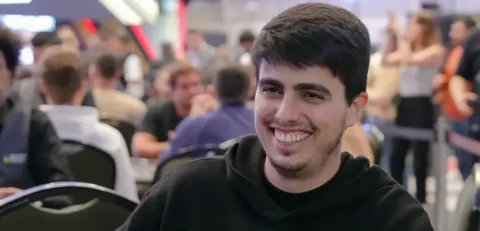Phil Ivey ended a 10 year drought and won his eleventh World Series of Poker bracelet last week, putting him alone in second place on the all-time list only behind Phil Hellmuth’s 17.

His win in the $10,000 Limit 2-7 Triple Draw Championship leaves Erik Seidel, the late Doyle Brunson, and Johnny Chan tied in third place with 10 bracelets. The $347,440 payday throws Ivey up and over the $10 million WSOP cash mark.
“I still get fired up for World Series of Poker events,” Ivey said after his win. “Now I have a family and other things that I value more than poker. But I still love it.”
All of Ivey’s WSOP bracelets were won in events that focussed on games other than hold’em.
His WSOP bracelet collection started simply enough in 2000 when he won a $2,500 Pot-Limit Omaha event for $195,000. In a sort of passing of the baton, he beat 1972 $10,000 Main Event champ and media darling Amarillo Slim Preston heads-up. Ivey was 23-years-old, but by that time already a seasoned high-stakes poker player with the reputation of a cold-blooded poker killer.
Two years later in 2002, he quadrupled his bracelet collection by winning not one, not two, but three events: a $1,500 Limit Seven Card Stud event for $132,000, a $2,500 Limit Seven Card Stud Hi-Lo event for $118,440, and a $2,000 Limit S.H.O.E. event for $107,540.
In 2005, he won his fifth in a $5,000 Pot-Limit Omaha event for $635,603. In 2009, he brought his total to seven with a win in a $2,500 No-Limit 2-7 Lowball Draw event for $96,367 followed by stacking everyone in the $2,500 Omaha/Seven Card Stud Hi-Lo 8 or Better for $220,538.
Bracelet number eight came 14 years ago in 2010 in a $3,000 H.O.R.S.E. event for another $329,820. He won his next one in Australia in a A$2,200 Mixed-Game event for A$51,840. A year later in 2014 he won his 10th by taking down a $1,500 8-Game Mix event for $166,986.
“It’s nice to win,” Ivey told a World Poker Tour reporter. “Nice to be consistently playing poker again, which I haven’t done in quite some time. I played a couple of Tritons, I played a WPT in Korea, and now the World Series [of Poker] so I feel like I’m getting better, getting back into the swing and hopefully, you know, we’ll keep it up.”
Alongside all these wins are six near misses where he finished as the runner-up. One of those happened in 2022 in the $100,000 High Roller No-Limit Hold’em where he won his WSOP second-best cash of $1,172,659.
His biggest WSOP cash came in the 2009 Main Event where he won $1,404,014 for finishing in seventh. He also went deep in the 2003 Main Event, just missing the final table of nine by one.
The 2024 $10,000 Limit 2-7 Triple Draw Championship attracted 139 entries, and the final table ran so slowly that it required a fourth day to finish up. Ivey’s 11th WSOP victory may have been one of his more improbable ones because he was down to one big bet with only Danny Wong and Jason Mercier sitting at the table with him.
Mercier, who was going for his seventh bracelet, wound up in third. Wong is still looking for his first one.
“I’ll just keep playing,” said Ivey. “I’ll keep showing up, playing, performing and hopefully winning. I’m motivated. If I can play, I will.”
| Place | Player | Country | Earnings |
|---|---|---|---|
| 1 | Phil Ivey | United States | $347,440 |
| 2 | Danny Wong | United States | $225,827 |
| 3 | Jason Mercier | United States | $151,412 |
| 4 | Benny Glaser | United Kingdom | $104,825 |
| 5 | Jonathan Cohen | Canada | $75,015 |
| 6 | Philip Sternheimer | United Kingdom | $55,553 |













